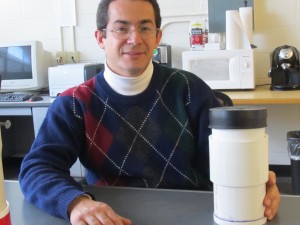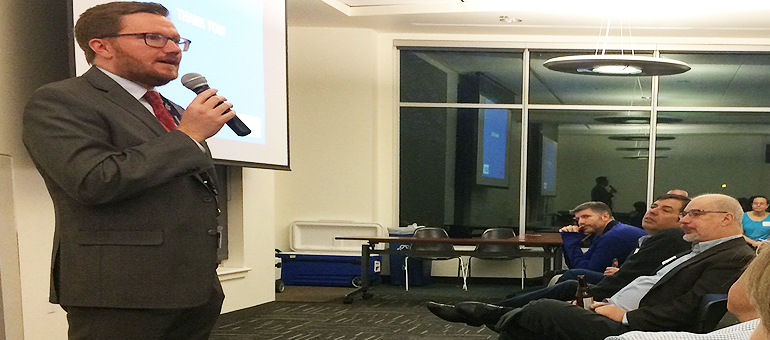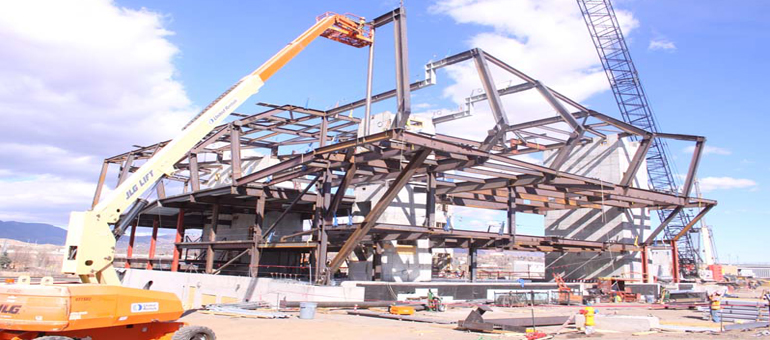E-Flux technology helps determine how fast oil spills in soils degrade through natural processes
Tuesday March 5, 2013

By Steve Porter
InnovatioNews.com
FORT COLLINS - With a petroleum-based economy and oil-and-gas drilling activity increasing across Colorado and the nation, it's inevitable there will be oil spills and instances of related groundwater pollution.
At Colorado State University, a team of researchers and industry sponsors has developed a patented technology that helps assess the rates of microbial degradation of petroleum in soils.
These estimates are important as they provide a baseline to compare the rates achievable with active remedies, and also estimate the longevity of these sources of contamination.
The team included research scientist Julio Zimbron and Tom Sale, a professor in the Department of Civil and Environmental Engineering. Zimbron took the team's patented technology and founded a company called E-Flux, which leases carbon dioxide traps to users and analyzes the data collected in the traps.

Mother Nature plays a big role in the process. Naturally occurring microbes break down the oil in the soil and convert it into CO2.
"It's about establishing the rates of petroleum degradation in the soil," Zimbron said, noting that petroleum degrades over time into carbon dioxide gas, which then migrates through the soil to the surface.
The CO2 is captured in the carbon dioxide traps - essentially PVC canisters partially buried in the ground above a spill area that contain a granular absorbent material that stabilizes and holds the CO2.
Left in place from two to four weeks, the canisters are then shipped back to E-Flux for analysis.
"It's a very simple idea," said Zimbron. "We simply capture the gases as they come out of the ground."
Simple, but effective, and with a reasonably precise measurement of the CO2 rising up from the spill, those responsible for its cleanup can better determine what alternatives are needed to remediate it.
"It's very important for making an assessment for remediation," Zimbron said. "People can spend a small fortune pumping oil (spills) out of the ground.
"Oil recovery might make sense if the yields are large, but these change through the life of a project, and at some point remediation approaches should be reassessed."
Zimbron said the CO2 trap technology has so far been installed at 18 locations across the U.S .
E-Flux is a CSU Ventures startup tenant at the CSU Research Innovation Center on the Foothills Campus and is also an off-site client of Rocky Mountain Innosphere in Fort Collins, where Zimbron said RMI's SAGE (Social and Advisory Group for Entrepreneurs) program of experienced entrepreneur mentors has proved invaluable.
"I have nothing but good things to say about them," he said. "In the last three months, I've learned so much from them. They've been so helpful and generous with their time."
E-Flux's customers include energy companies, pipeline owners and owners of property where spills have occurred over time, such as railroad yards.
Zimbron said he has high expectations for marketing the E-Flux technology at a time when demand for such a product is likely to grow dramatically.
"We're a startup that was able to hit the ground running," he said. "It shows we've done our homework addressing a real need."
Jeremy Nelson, director of licensing and business development for CSU Ventures, said E-Flux is "a great example of the way university research can translate into real-world applications and help real-world people out."












